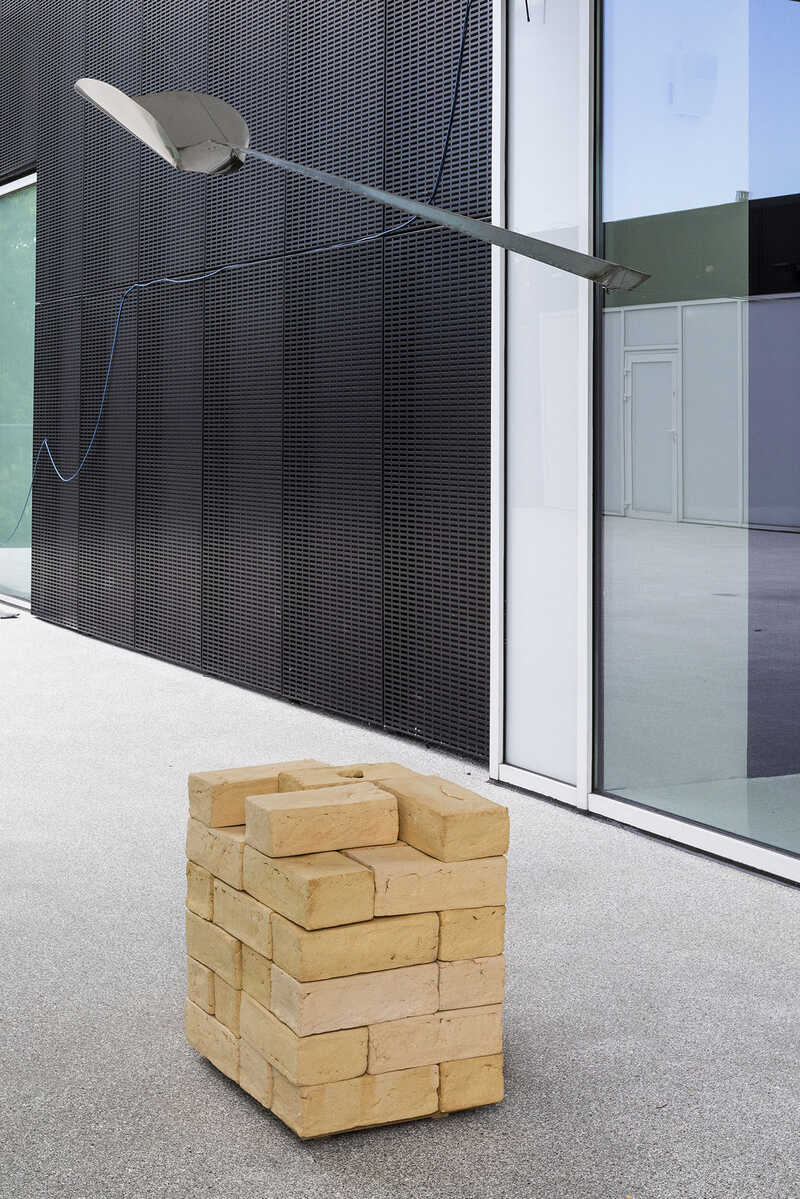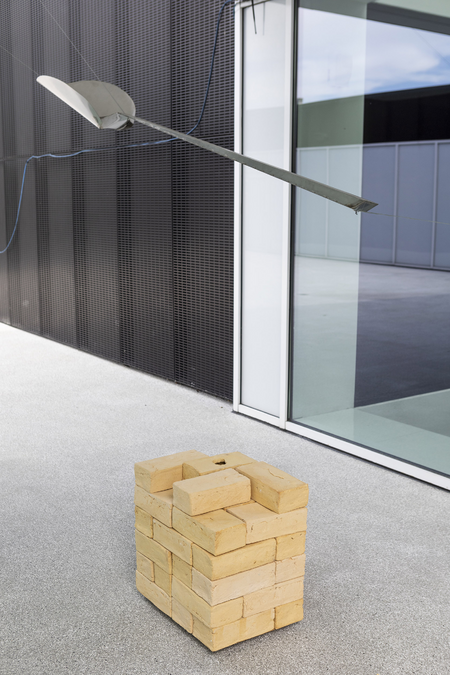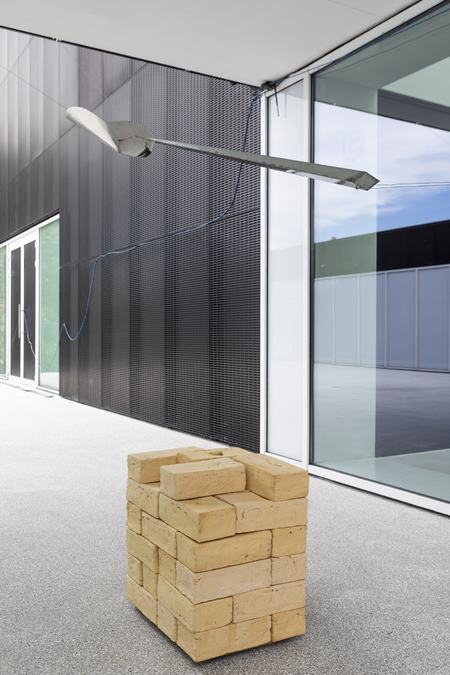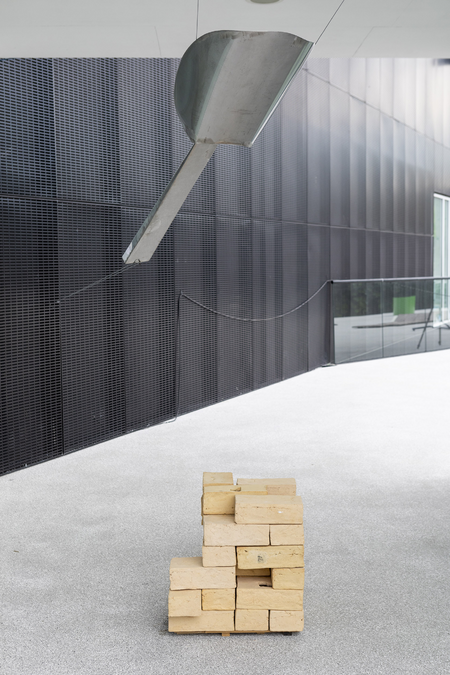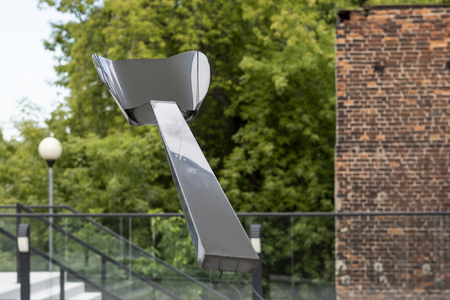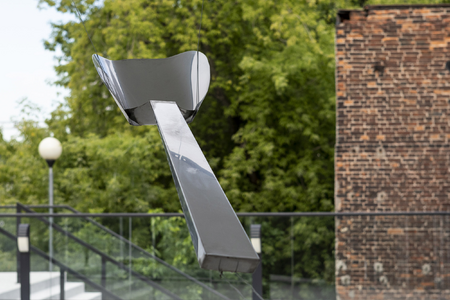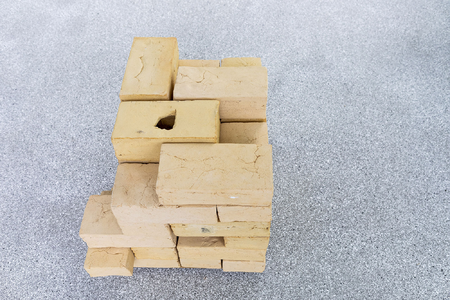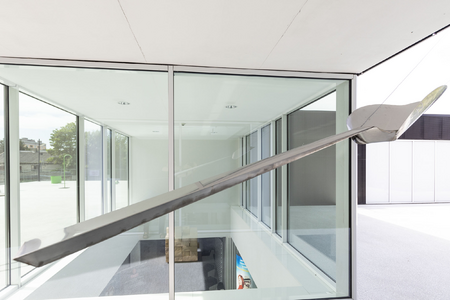*Fragment of Bertolt Brecht’s poem Emigracja [Emigration] from the collection Postylla domowa [Hauspostille], transl. into Polish by Robert Stiller, PIW, Warszawa, 1988]
In one of his poems Bertolt Brecht wrote: “(…) they stood on the seashore wishing to walk through it and they had only a spoon to drain it (...)“.*
I came across this quote a few years ago and the absurdity of the situations described in the poem inspired me to do further artistic research. I studied and spent time on creative work in Germany. Some time ago, having lost two closest people and gone through remarkable changes in my personal life,
I returned to Poland. I closed one chapter in my life and opened another one.
Referring to the above-mentioned quote… Spoon - a surreal, abstract element, so to say. This minimalistic, simplified form of a spoon, perfectly cut in metal and welded, stands in contrast to the bricks. The process of bricks creation was a very important activity for me. I visited a brickyard in the area and conducted research. I prepared a form for brick manufacture. Portions of clay mass inserted into the form, returned finely shaped clay blocks. The bricks are completely hand-made and represent a significant step in the beginnings of civilisation. There are no two identical bricks. They differ even in that they occupy different spaces in the brick kiln.
*an excerpt from Bertolt Brecht’s poem Exil (translation own).
Fot. Marcin Kucewicz, Mazovian Centre of Contemporary Art Elektrownia in Radom, Poland, 2022.
Untitled “(…) they stood / on the seashore wishing to walk through it and they had only / a spoon to drain it (...)“.*
Factsheet
- Dimensions
- 220cm, 200cm, 150cm (Height, Width, Depth)
- Weight
- 170kg
- Year
- 2017
- Material
- Steel, Clay
- Style
- Installation
